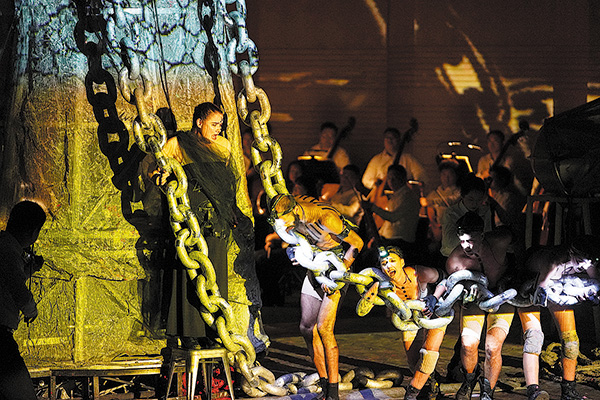

"One of the most exciting and controversial developments in the intersection of classical music and technology is the use of artificial intelligence to compose music. It offers a new avenue for creativity and innovation, allowing composers to explore new musical territory," says Hao.
"However, it also creates challenges. While AI can generate music that sounds similar to classical music, it cannot replicate the emotional and intellectual processes that underlie human creativity."
For the first time, Hao used electronic music in his composition. "The process of composing the opera made me think, and I hope that the result is thought-provoking for the audience," he adds.
In 2017, when Hao saw the news about AlphaGo becoming the first computer to defeat a world chess champion, he started to think about the relationship between AI and humans.
Young pianist Zhang Haotian, who once studied at the Mannes School of Music in New York and at the Royal Academy of Music in London, also staged his exploration of classical music during the festival.
On Oct 3, he gave a concert featuring pieces including Pyotr Tchaikovsky's The Nutcracker Suite, Franz Schubert's Standchen, D 889 and Igor Stravinsky's Three Movements from the ballet Petrushka, in collaboration with digital artist Dada (whose real name is Da Qiuyan), and visual director Ren Dongsheng.
"We created something that was visually arresting and grabbed people's attention, which made me very excited," says Zhang.